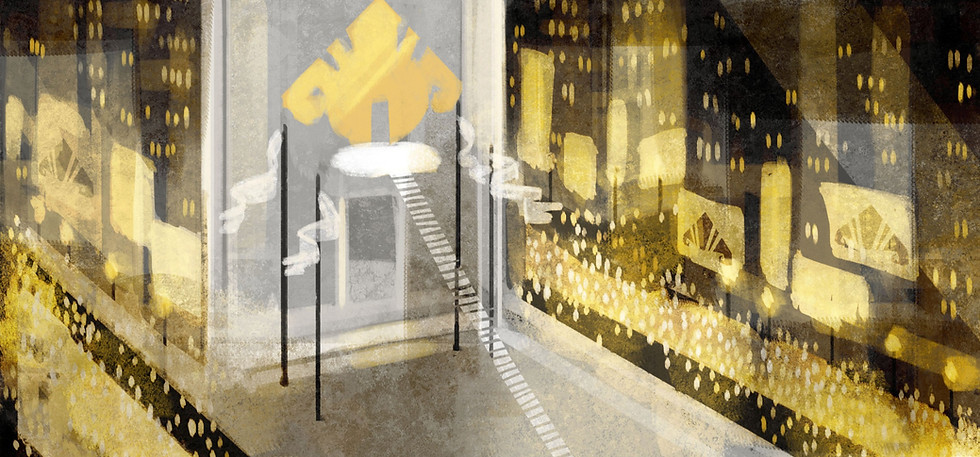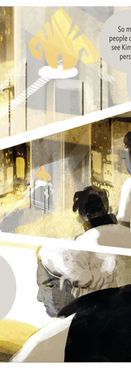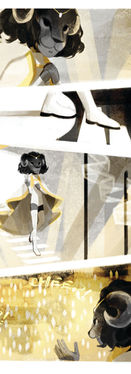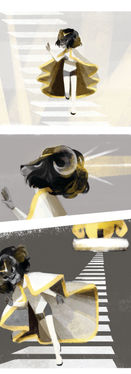

KUNWARI (Gallery)
Kunwari, Tagalog for “make believe,” is a multimedia story questioning society’s rapidly growing relationship with media and our shallow obsessions with the people we choose to idolize: people hidden behind “masks.” The story is set in a city that blindly worships their idol, Kimera, an amalgamation of influential figures (i.e. political, religious, and celebrities) based on the chimera, an imaginary creature from mythology representing the idealistic.
Kunwari discusses the media’s ability to highlight and/or erase cultural identities, to hide painful truths behind smiles and lies, and to exploit people and resources for ulterior motives or personal gain. Kunwari implores its audience to question the authenticity of what is shown on the screens, to be skeptical of who is truly in power, and to be wary of the tragic consequences of our blind idolization.
 |  |  |  |
|---|---|---|---|
 |  |
KUNWARI (Comic)
Kunwari is a 30-page comic that introduces
an expansive world much like our own, a modern age of screens. With the convenience of technology, we become detached from the harmful impacts we leave on others and the environment. Kunwari follows the story of Kimera, a girl who is exploited as a mascot-like figurehead in a city of avid followers. Reading the comic reveals themes on colonization, abuse of power, and societal habits bordering on religious worship, while being surrounded by screens that allows everyone to forget their destructive actions and continue to indulge themselves in them.
Kunwari brings attention to the “cultural propaganda” of the modern age, where the people on the screens become authoritative figures with power and influence over a society who is hopelessly drawn to the screens.

KUNWARI (Animation)
Reiterating the crucial role that screens play in Kunwari, the animation serves to show the appeal of screens. In the gallery, it draws the attention of visitors who are attracted by the screen and curious about the figure displayed, where it can be understood that this character is important, even if the viewer doesn’t understand why. This reciprocates the mass of followers in the story, who listen to their “leader” on the screens without truly understanding why or ever questioning their authority.
I wanted to draw the viewer’s attention using the very thing that controls the lives of the people in the story: screens. In so doing, it not only acts as a preview for the comic and encourages people to read it, where we find a story that ultimately subverts the power of the screen, but it becomes a live reenactment of it. For those who watched the animation but chose not to read the comic, they become living examples of the characters in the story who are drawn to the screens without truly caring about the contents and unwittingly become accomplices to the harm caused by the city.

The 30-page comic of Kunwari acts as an introduction to a world that can easily be expanded upon, but focusing on a story that hopes to entertain and ultimately impart social and environmental consciousness. Taking inspiration from works such as Avatar: the Last Airbender and Steven Universe, Kunwari takes on the postmodern world of globalization and technology, while addressing the pressing need for compassion, more engaged human interaction, and environmental awareness.
Kunwari is a dystopia that appears to live happily in a technologically advanced world, set in a giant moving city that thrives off of the power of its followers and their blind idolization. Upon closer inspection, readers discover that the city abuses its influential power to plow through foreign lands, forsaking anyone in their path, displacing native peoples from their homes, and exploiting resources. Due to the influential power of screens, the city-dwellers live in blissful ignorance to the harm they cause to the world.

























